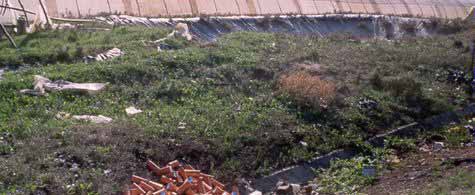ENVIRONMENTAL CONVENTIONS


The most severe environmental damage and health risks resulting from inappropriate handling of chemicals occur in the poorest countries. Poverty, illiteracy, exploitative working conditions and the lack of a legal framework contribute to this situation. Peasants spray pesticides without protective clothing, instructions for use or warnings on packets are not read carefully, and children get sent out to spray toxins. Animals drink from pesticide-ridden irrigation canals, or water is taken from them to wash vegetables. Pesticides are used for fishing and for "protecting" dwellings and food stocks against vermin. Similar dangers are posed by the way chemicals are handled in small informal workshops and dye houses, tanneries, textile production shops and carpet factories.
With the signing of the Persistent Organic Pollutants (POPs) convention by the responsible Ministers of the contracting states in Stockholm in May 2001, a process began that is to ultimately lead to a world-wide ban on production, trade, use and storage of certain long-living organic pollutants. In the industrialised countries, the production and the application of the twelve chemicals that fall under the POPs convention so far is already forbidden or at least limited to a large extent. However, in many developing countries, POPs are still produced or used as plant protection agents, wood preservatives, to combat malaria or in industry. A further major problem the convention addresses is the disposal of previous POPs stocks. Particularly in Africa and Eastern Europe, several 100,000 tons of old pollutants can no longer be used.